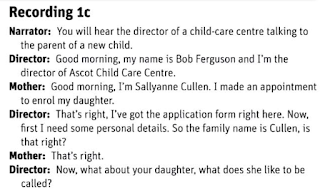Objective of Studies
In this meeting we are going to study about the adjective clause in spoken and written. After this meeting, the students are expected
· Able to identify and use the relative pronouns such as that, which, who, whom, where spoken or written;
Learn About It!
Today we’ll look at some words that cause a lot of confusion, the relative pronouns that, which, and who, and then we’ll do some pronunciation practice.
Video 1
OK, let’s focus on this clip
My sister, who is a professor of French, lives in Paris.
The above sentence uses relative pronoun who, if you wonder about this topic you may ask some questions relate to this one.
Do you understand?
How to use relative pronoun? let’s watch this clip.
Video 2
Here are the scripts of the conversation.
People have always been fascinated with death. Most of the mysteries that you see on television, the film that you see, involve murder in one kind or another.
Crocodiles are one of the last remaining dinosaurs and the idea of a crocodile coming out of the water and grabbing somebody is absolutely riveting.
I read about the death of the German tourist who was taken by a crocodile. It didn’t put me off coming to the Northern territory, quite the opposite in fact.
I think the NT is famous for its crocodiles and probably quite famous for its crocodiles attack and that tourist who come here would like to be, of feel as though they were, involved in that danger.
Tourist want to have a story to take home and if they can say that they were in the Northern Territory where the German tourist was taken by the croc, then it adds to their own adventure.
Most of the mysteries ‘that’ you see on TV involve murders.
I read about the death of the tourist ‘who’ was taken by a crocodile.
Relative pronouns are used to introduce adjective clauses
Relative pronouns are used to introduce adjective clauses
- a. I read about the death of the tourist who was taken by a crocodile.
- b. …. tourist (NOUN) who was taken by a crocodile (ADJECTIVE CLAUSE)
The tourist is subject. The ‘who clause’ gives more information
here are other example:
But how do we choose between who, which or that?
Well the relative pronoun WHO is only used with people
WHICH is only used with thing
THAT is usually only used with the thing as well. Sometimes, in informal language, it can refer to people.
1.














Follow Us
Were this world an endless plain, and by sailing eastward we could for ever reach new distances